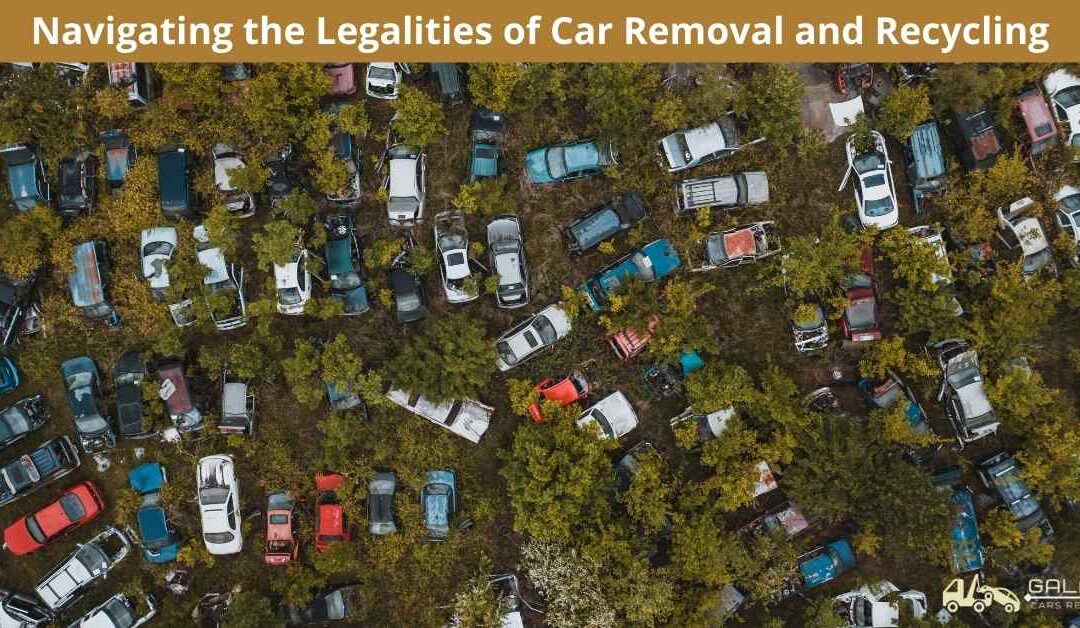Disposing of an old or unwanted car involves more than just finding a junkyard willing to take it off your hands. Navigating the legalities of car removal and recycling is a crucial aspect of ensuring a smooth and lawful process. This article aims to guide you through the legal considerations associated with car removal and recycling, providing valuable insights to help you comply with regulations and make environmentally responsible choices.
Ownership Transfer and Documentation:
Before embarking on the car removal process, ensure that you have clear documentation establishing your ownership of the vehicle. This may include the title, registration, and any relevant transfer of ownership forms. Proper documentation is essential to prevent legal complications and liabilities after the removal process.
Understand Local Regulations:
Laws governing car removal and recycling vary by region. Research and familiarize yourself with the specific regulations in your area to ensure compliance. This includes understanding the proper disposal methods, recycling requirements, and any environmental standards set by local authorities.
Choose Licensed and Certified Services:
When selecting a car removal or recycling service, prioritize those that are licensed and certified. This not only ensures that the disposal process adheres to legal standards but also minimizes the risk of your vehicle being mishandled. Licensed facilities are more likely to follow environmentally responsible practices and proper documentation procedures.
Environmental Impact Assessment:
Certain regions may require an environmental impact assessment before disposing of a vehicle. This assessment evaluates the potential impact of the disposal process on the surrounding ecosystem. Compliance with such assessments may involve specific disposal methods or recycling practices to mitigate environmental harm.
Proper Handling of Hazardous Materials:
Cars often contain hazardous materials such as lead-acid batteries, mercury switches, and refrigerants. Proper handling and disposal of these materials are critical to comply with environmental regulations. Choose removal services that have protocols for safely handling and disposing of hazardous materials in accordance with local laws.
Notification to Relevant Authorities:
In some jurisdictions, it may be necessary to notify relevant authorities about the intention to dispose of a vehicle. This notification could involve providing details about the vehicle, its location, and the chosen disposal method. Failure to notify authorities where required may result in legal consequences.
Data Wiping for Smart Cars:
Modern vehicles equipped with smart technology may store personal data. Before recycling or disposing of such cars, ensure that all personal data is securely wiped from the vehicle’s systems. This not only protects your privacy but also helps you comply with data protection regulations.
Conclusion:
Navigating the legalities of car removal and recycling is a crucial step in ensuring a lawful and environmentally responsible process. By understanding and adhering to local regulations, choosing certified services, and properly documenting ownership transfer, you can navigate the legal landscape with confidence. Responsible car removal not only avoids legal complications but also contributes to the promotion of sustainable and eco-friendly practices within the automotive industry.
If you are in Narre Warren South, Victoria 3805, and looking for a car removal service, this is the best way to visit us.
Contact Us
Galaxy Cars Removal
10 Silvergum Pl, Cranbourne VIC 3977
0413 176 223

